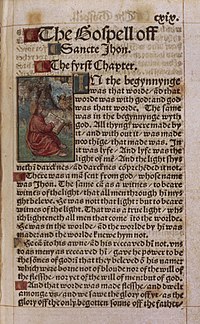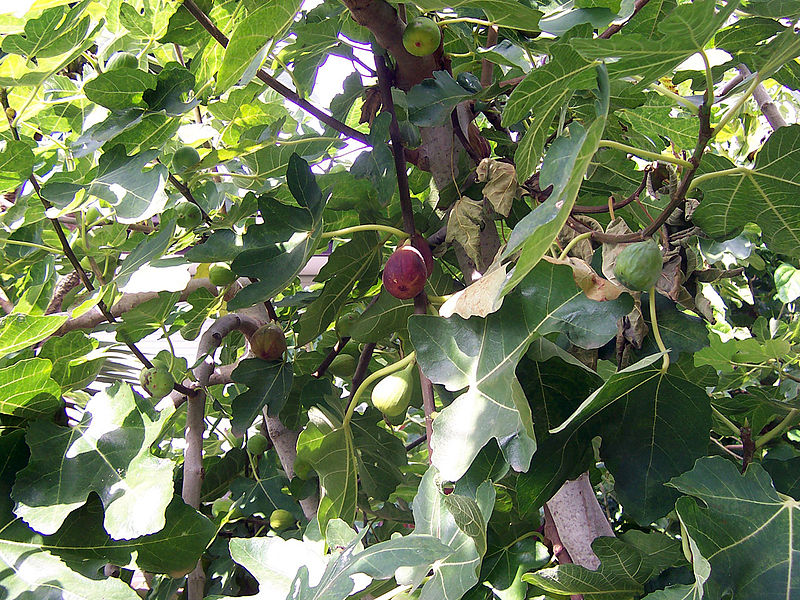Today we marked Bible Sunday at our Cathedral Eucharist. In preparing to preach - commentary in one hand, an interview with Russell Brand in the other - I pondered what is 'different' about preaching on this Sunday compared to any other. Aren't we always engaging with and preaching on Scripture, in attentiveness to the reality of our life in the world? I have a similar niggle on Trinity Sunday - why do preachers panic then, when surely we are called to explore the mystery of God as Trinity every time we step into the pulpit? Anyway, I guess in part a way of focusing on the particular so that we don't become complacent - taking Scripture for granted or neglecting its enduring impact as we read, mark learn and inwardly digest.
At one point I thought I'd begin by reflecting on the crowds which filed past on of the only surviving copies of the Tyndale Bible in St Paul's; I was so struck by the risk and cost of translation; of God's word being read and heard in the vernacular. In the end, I was struck by the sense of uncertainty and crisis - named by Russell Brand - and the way it is met with Jesus' words of assurance. Brand is someone I find endlessly fascinating as he both names the frailty of our human nature and also seeks after something 'true'. Is he challenging us to have more confidence in the Bible in naming both vice and virtue - keeping the rumour of grace alive? The texts were: Nehemiah 8:1-12; Colossians 3:12-17; Matthew 24:30-35
Russell Brand isn’t a conventional comedian; he’s controversial, certainly.
He self-identifies as ‘a trickster, a joker, a playful person’; someone ‘on the edge of the community’. He’s someone extremely compulsive, drawn to fame like a moth to light. Having struggled with addictions he has found stability by following a 12-step recovery programme.
‘Society is collapsing’, he says, ‘and people are starting to recognise that the reason they feel like they're mentally ill is that they're living in a system that's not designed to suit the human spirit’.
‘Society is collapsing’: perhaps that thought flashed through Nehemiah’s mind in exile as he grieves over the situation in Jerusalem.
Perhaps it was a concern for Paul as he wrote from his prison cell about the threat of false teaching and practices.
Did that prospect run through the disciples’ minds as Jesus spoke to the Temple’s destruction and things passing away?
On Bible Sunday, we remember that our scriptures have always spoken into times of dissatisfaction and fear; when it seems as if familiar social order is fragmenting and the future uncertain, God’s word remains.
The Tyndale Bible
The Bible continues to speak of the freedom, forgiveness and delight to be found in God’s love for us; of the promise of all things being made new; of a Kingdom of justice and mercy which does indeed suit the human spirit.
Prophets, poets, historians, letter writers, psalmists, evangelists: all of them address our questions and struggles. They name our deepest longings and our misdirected desires.
They continue to whisper:
you
are
loved.
They declare that ‘God loves us’.
They inspire us to ‘love one another’.
Today we hear how Nehemiah invited people to hear that law of love afresh. He was practical and a well-organised leader; someone of spiritual depth. He was rooted in prayer; stood firm against intimidation; sought justice for slaves. Having overseen the rebuilding of Jerusalem, he knew the returning exiles needed to be spiritually ‘rebuilt’.
As we rejoice in a restored cathedral we, like them, are invited to pay deep attention to God’s word, distilled into the commandment to love God with all that we are and to love our neighbour as ourself.
These words set us free: sometimes we will weep when we confront our failures. But now as then we are encouraged to rejoice in the strength of God’s grace and to care for those who are in need. The words of scripture are taken to heart; they shape the life of the community. To hear God’s word of love was a cause for celebration and feasting.
Ezra reads the law to the people
Gustave Dore illustration of La Grande Bible de Tours
Today’s Gospel sounds like a dramatic shift in tone: there’s a sense of urgency and foreboding in Jesus’ words. He had been speaking of the dangers of false teachers and the threat of persecution; even the Temple at the heart of the city would be destroyed. It isn’t hard for us to imagine such cosmic collapse.
Every time we open a newspaper, watch Question Time or scroll through our Twitter feed, we are aware of situations of political volatility and tension. We see images of destruction and ruin as a result of war or environmental degradation. We read of the concern around student mental health; we’re shocked when politicians make jokes about sexual assault.
The sorrow stirred up by our fragile world can’t be measured in words.
And yet… and yet… Scripture reminds us that God’s word of judgement confronts us in the midst of crisis and collapse.
Jesus says: the old order will come to an end; a new thing will emerge.
Amidst dire events, we see signs of God’s Kingdom. Jesus invites us to look at the world through a horticultural lens: first the bud, then green shoots; leaves unfurling on a tree destined to fruit.
When we worry that society is collapsing, we are called back to God’s word. Our scriptures name not only our human propensity to get things wrong; but they also name the persistent melody of God’s healing love. The words of the Bible point us to God’s Word made flesh; God is with us in Christ Jesus. His life expresses the fullness of love. His death destroys death; his risen life brings life to others.
We live with merging horizons: knowing that in Christ something decisive has happened, yet watching the whole creation groan with longing for the liberty of God’s Kingdom. Jesus doesn’t give us dates and details. Instead he invites us to have confidence in his words of life and love. We are to pay deep attention to where we see glimpses of God’s activity - and we are to build God’s Kingdom through our own acts of care; to seek it in our pursuit of justice.
Society is collapsing, say Brand as he names our vices, anxieties and addictions; our experience of loneliness, disappointment or exploitation; our attempts to make ourselves feel better. He says ‘the secularisation, the materialisation, the individualisation of the way we see the world now excludes us from a life that has meaning. And I don’t think pop culture can fill that gap any more.’ He continues, ‘people need to be able to connect with something that is essential and beautiful and valuable and true’.
Is Russell Brand unwittingly calling us back to the truth expressed in the Bible?
Our book of books contains100s of stories of human beings grappling with hurt, fragmentation and failure; what Brand calls vice, we call sin. Scripture contains100s of stories of humanity reaching out to God; what he calls a higher power. The Bible is 100s of stories of God revealing Godself to us; what Brand calls beautiful, valuable and true.
In Scripture God breathes 100s of times:
You.
Are.
Loved.
Such love isn’t an abstract concept. It is something with which we are to cloth ourselves. Something we grow into and make our own. Love is to be our appearance; and what we see in others.
Brand is right to name our bad moral habits, our ‘vices’. In Colossians, Paul names good moral habits, or ‘virtues’. As we put on love we cloth ourselves in these Christ-like character traits. We increase our capacity to do what is good and true: acting with compassion and kindness, practicing patience, expressing gratitude, learning to forgive.
In You are what you love, James K A Smith reminds us that we can’t think our way into this pattern of life. We truly learn God’s commandments to love by adopting practices of imitation. Our love is learnt in worship - it’s a process of ‘reformation' not simply ‘acquiring information'. He writes, ‘the orientation of the heart happens from the bottom up, through the formation of our habits of desire. Learning to love (God) takes practice’.
In this Eucharist we are clothed anew. We read, mark and learn the words of Scripture which unfold the story of God’s love for us. Here we practice love in community. We received forgiveness and share peace. We inwardly digest God’s Word in bread and wine, receiving what we are; becoming Christ’s body in and for the world.
When we worry that society is collapsing, here our vision of God’s Kingdom is renewed. And in the power of the Spirit we are sent out in peace to love and serve. May we see green shoots appearing; may we be to others hopeful signs of new life.
© Julie Gittoes




